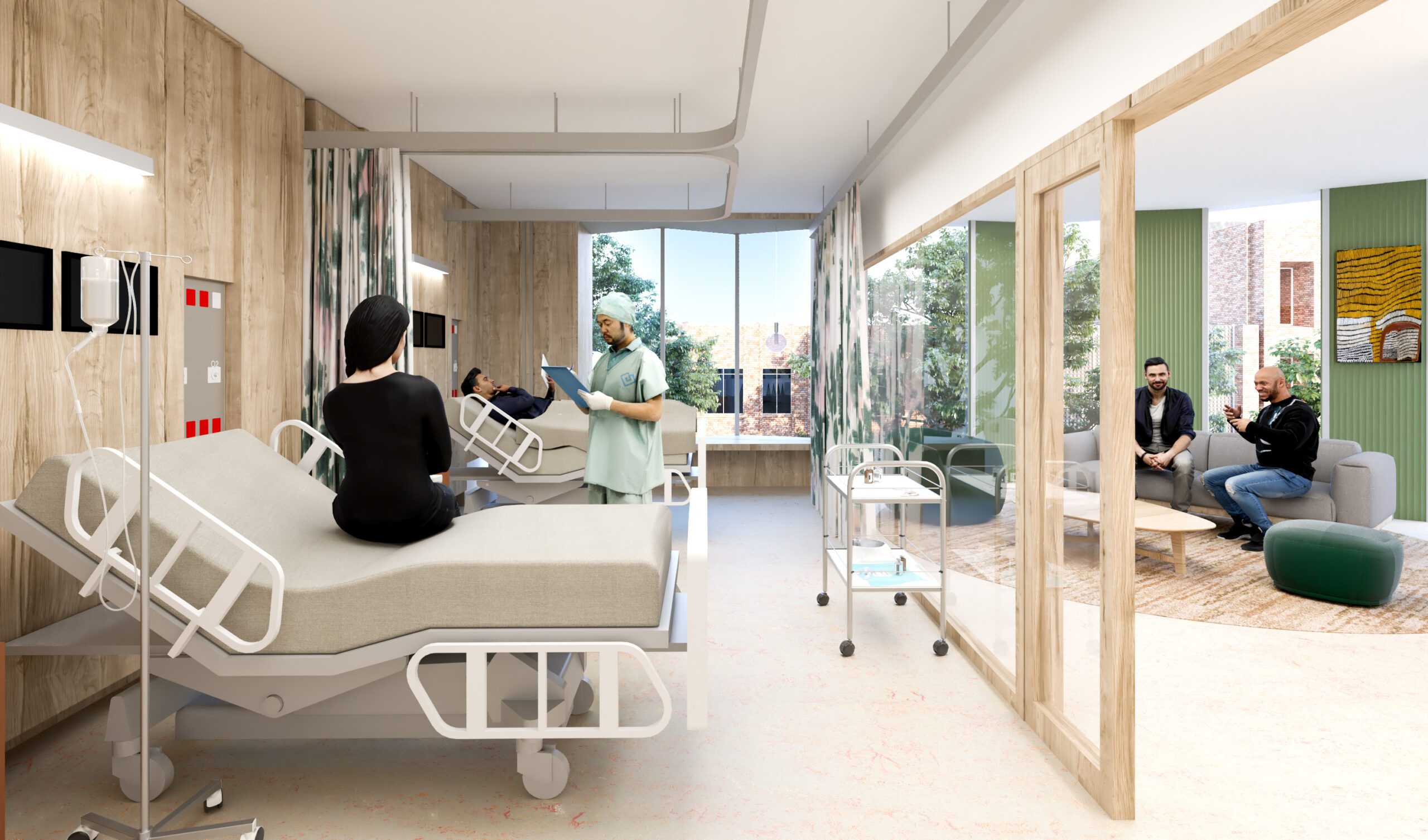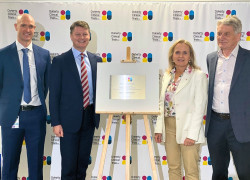Australia’s first clinical trial facility specifically commissioned to deliver human challenge trials, Doherty Clinical Trials Ltd, was launched today in East Melbourne by The Honourable Ben Carroll MP Minister for Medical Research and Professor Sharon Lewin AO, Director of the Peter Doherty Institute for Infection and Immunity (Doherty Institute).
As a not-for-profit registered charity and subsidiary of the University of Melbourne, Doherty Clinical Trials has been established by the Doherty Institute to accelerate the development of novel medicines and vaccines through bespoke early phase clinical trials solutions, including human challenge trials.
A human challenge trial is a type of early phase clinical trial that allows researchers to test the effectiveness of vaccines and therapeutics for infectious diseases, with the aim of speeding up the development. Human challenge trials involve administering a well-characterised infectious agent to healthy volunteer participants within a controlled environment to test the drug or vaccine under development.
The current 25-bed facility is located in the former Peter Mac building in East Melbourne. In the future it will be housed in the Australian Institute for Infectious Disease (AIID) (below), alongside Foundation Partners the Doherty Institute, the University of Melbourne and the Burnet Institute.

Above: Artist’s impression of the future Human Challenge Unit to be housed in the AIID facility.
Professor Lewin said the establishment of Doherty Clinical Trials was a major coup for Australia.
“The COVID-19 pandemic highlighted the need to accelerate how new vaccines and treatments are developed. This will help us all to get lifesaving medicines more rapidly in future pandemics,” she said.
“While human challenge trials have been used to develop new medicines and vaccines globally for decades, our purpose-built facility is the first of its kind in the southern Hemisphere, and will build capabilities right here in Victoria enabling rapid research translation.”
Professor James McCarthy, Chief Medical Officer of Doherty Clinical Trials, said human challenge trials are one of the most efficient ways to evaluate the efficacy of novel vaccines and therapeutics.
“By providing early and rapid efficacy data using small cohorts of participants, human challenge trials can produce more reliable and reproducible results than studies in affected patients where variables are less controlled,” Professor McCarthy said.
“With these type of studies, vital information about the efficacy of vaccines and potential treatments can be received very quickly and at a significantly lower cost.
“As most drugs and vaccines fail along the clinical development pathway, it is advantageous to rapidly determine if development of a candidate vaccine or treatment should continue, or if the researchers should pivot to an alternative candidate with a higher chance of success.”
Upcoming human challenge trials will include influenza, Streptococcus pyogenes (Strep A), gonorrhoea and malaria. These studies will be conducted in partnership with Australian and global research teams.
The establishment of Doherty Clinical Trials was made possible by generous contributions from the Victorian State Government and philanthropic funding via the Doherty Institute.
People can register their interest to participate in future trials by visiting dohertyclinicaltrials.com.
